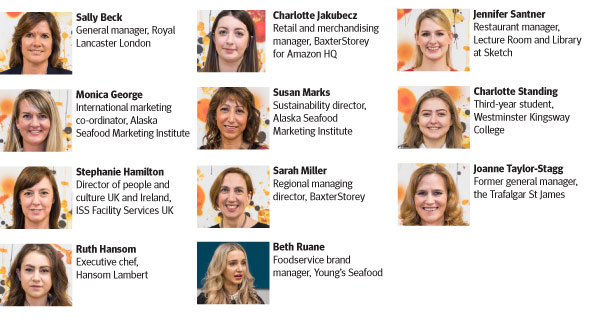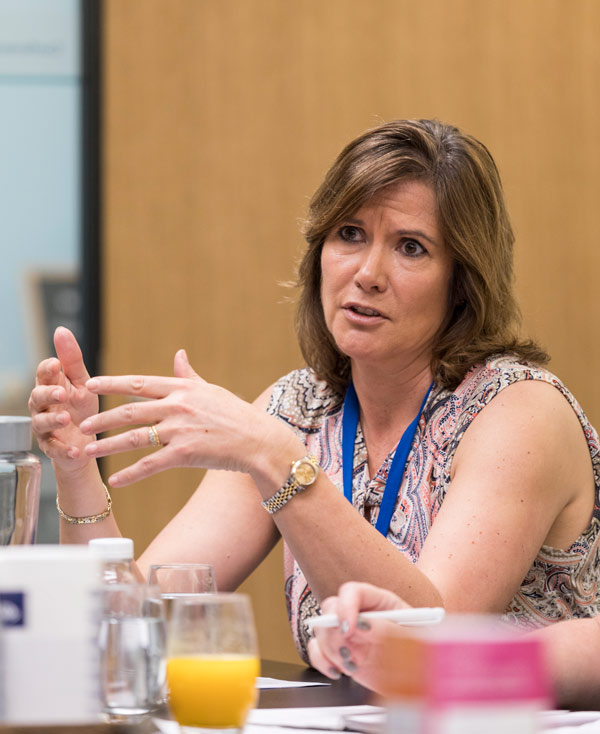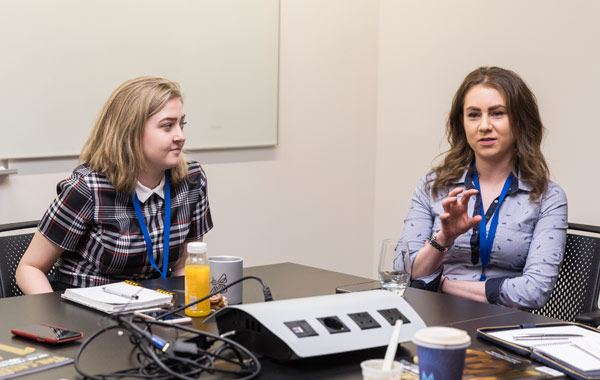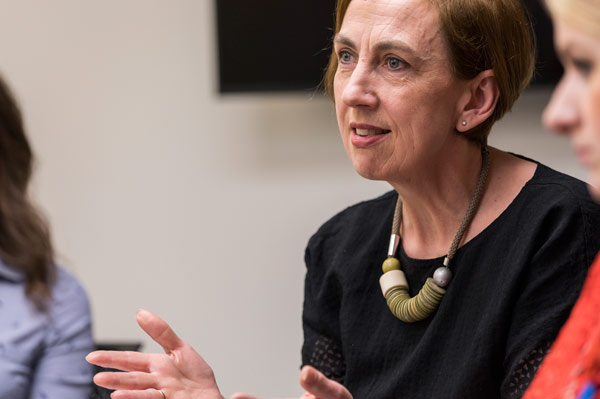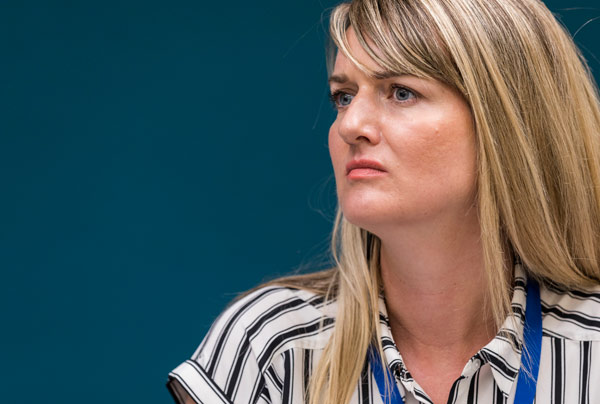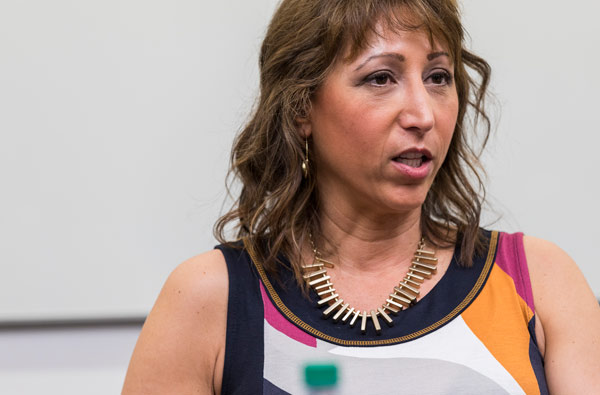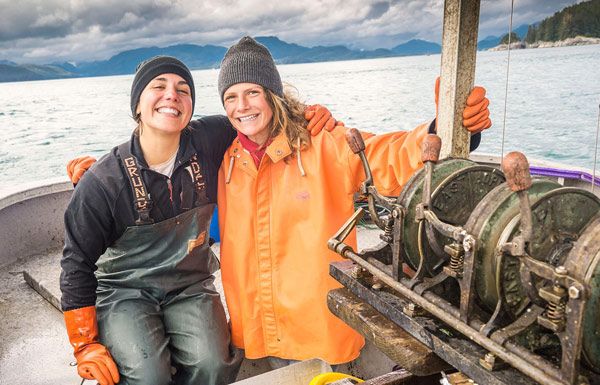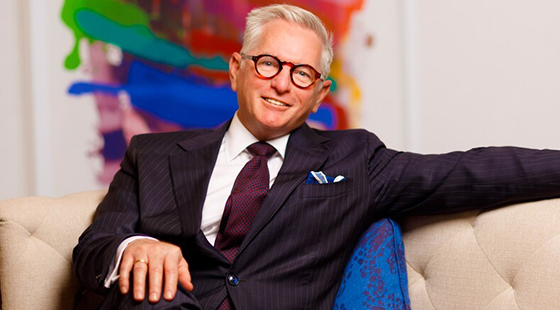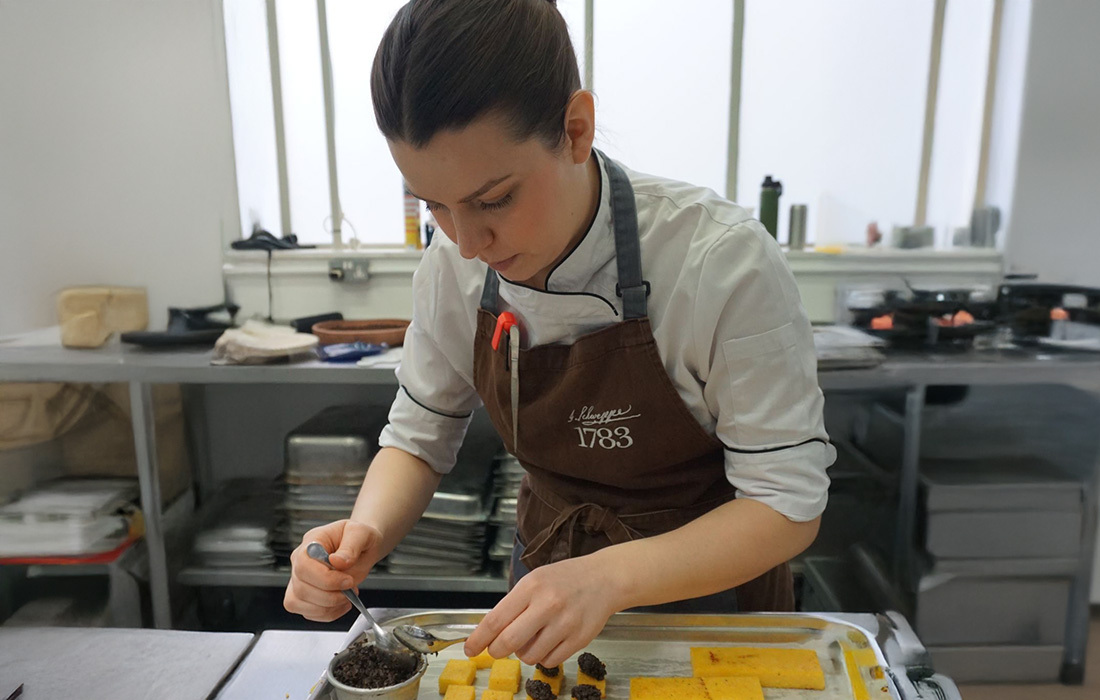Round table: Women in hospitality
Following the gender pay gap report and the lack of women in top jobs highlighted by The Caterer Top 100, Anne Bruce reports on a roundtable held to discuss the obstacles facing women across the industry
In the same week that The Caterer's list of the Top 100 Most Powerful People in Hospitality was published, a group of leading women from across the industry met to discuss their experiences and to debate the issues faced by women in the sector.
The roundtable, sponsored by the Alaska Seafood Marketing Institute (ASMI), was well-timed, with the prestigious Top 100 list showing that the upper echelons of the industry are predominantly still male-dominated. Held at Amazon's new headquarters in Shoreditch, London, it was an opportunity to look at how the industry measures up on equal pay, family-friendly working, recruitment and harassment and to ask why more women aren't in the top jobs.
Chair Lisa Jenkins, products and suppliers editor at The Caterer, asked for the reaction to the Top 100 list and to figures that showed that hospitality acquitted itself relatively well on pay. As The Caterer reported on 9 April, the median hourly rate paid to women was 1% lower than that paid to men across the hospitality sector, far below the national average of 9.7%.
Hotelier Joanne Taylor-Stagg pointed out that the Top 100 tells its own story on pay, as it only includes 13 women.
Sarah Miller, regional managing director at BaxterStorey, said: "There is a good balance at entry level and middle management, but not in senior positions. Change percolates through at the lower levels first. It is generational. I see that changing. In my management team I have a 60:40 balance towards women."
Stephanie Hamilton, director of people and culture UK and Ireland at ISS Facility Services, suggested that the problem was the gender distribution: "We have made good strides and we should be proud. But the problem is hierarchical; the top of the industry is male-dominated."
Monica George, international marketing co-ordinator at ASMI, said: "You have to have the confidence to apply for a job and ask for the right money, and to turn down those jobs and walk away if they can't offer it. But it's hard to ask."
Susan Marks, sustainability director at ASMI, added: "The biggest disservice I have done myself is at the negotiating table when I accepted the job. I'd just accept the range, but you can go higher. Negotiate high. Your biggest opportunity for leverage is at that stage. Be positive and say, ‘this is the value I bring'."
Taylor-Stagg suggests that in some cases the gender pay disparity arises because women don't ask for enough money at the off and must play catch up. In a previous job, she had to tackle pay inequality with a male colleague: "I found out that I was being paid a large chunk less than another manager in a similar role. In my next review I did a comparison on my performance versus his. I did not discuss gender at all, just results, and said that I should be paid comparably based on performance."
What extent is sexism a problem in the industry? Perhaps surprisingly, more problems were reported by the younger women in the group. Beth Ruane, foodservice brand manager at Young's Seafood, said she was asked in an interview the question "do you have a boyfriend?"
"I said, I wasn't sure of the relevance. It is worrying that these questions can be asked. I have also worked in the meat industry. They were reluctant to take one girl on in the butchery, but I said, your drop-out rate is really bad, what have you got to lose?"
And third-year student chef Charlotte Standing, of Westminster Kingsway College, London, also said she had to develop a thick skin while working long hours at college: "If you challenge banter in the kitchen you are called sensitive; you get told you are soft."
The roundtable discussed what needed to be done to support women in the workplace and mentor younger colleagues. Charlotte Jakubecz, BaxterStorey retail and merchandising manager at Amazon HQ, said that all the way throughout university, gender balance in hospitality was a major focus: "Now I'm a junior manager, I try and champion the women in my team."
Taylor-Stagg suggested that everyday management language can reflect an underlying gender bias: "When we are telling someone to toughen up, we say ‘man up', ‘grow a pair'. Hang on, we are totally undermining the
brilliant things that women bring to the table. We are different and bring different skills."
Beck said: "All of us have an amazing story about why we're here and why we are loving it, but the problem is that there is a grind at the start of the career. The hotel sector is 24/7, and as an industry we can offer lots of flexibility, but as in all sectors, we tend to be quite rigid and not as creative as we could be."
Beck now checks if anyone in her team is regularly doing more than 50 hours a week.
"I encourage them to take time off. If they come back tired, they're not creative. That is massively different from when I started, when 12- to 15-hour days were the norm, the question then was: when are you coming in at the weekend, not are you coming in?"
Jennifer Santner, restaurant manager at Sketch, said that early in her career she would nap in the park between double shifts, but now employers are not as demanding of long shifts from staff as they previously were, with working hours capped at 48 hours.
However, when she is recruiting staff herself, she had to be "straightforward": "I can't make exceptions for certain employees to leave at 11pm every night, because everyone would want to leave then and not at 1am."
Creating a positive work-life balance makes good business sense, said Hamilton: "We need a good value proposition to appeal to schools and colleges, that you can have a decent lifestyle. We are not a career of choice."
If the industry offers flexible hours, it can accommodate mothers returning to work, she added. Although not everyone has children, often "you get to a point where you lose women in the workplace," Hamilton said. It is a two-way street, and having trust in place before women go on maternity leave allows for a smooth return, said Beck. She added: "I was really open with my boss about when I would return to work. I find it very frustrating when pregnant staff won't give me an idea of their plans, but obviously I can't hold them to it."
As the debate drew to a close, it was clear that there is still work to do in dispelling ingrained attitudes and changing structures impacting women in hospitality.
From our sponsor
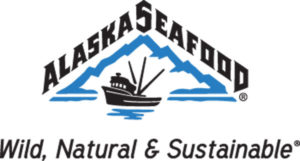
The Alaska Seafood Marketing Institute is proud to promote diversity in the Alaska fishing industry and for this reason chose to spearhead the Women in Hospitality roundtable.
There is no doubt that the hospitality industry, like the fishing industry, offers great opportunities for men and women of all ages. But, the recent industry Top 100 included only 13 women, with only eight represented without a male partner.
The intention of the roundtable was to bring together women from all sectors of the industry at different stages in their careers to discuss what the challenges and opportunities are for women. In Alaska, anyone can run their own fishing boat. The success of a boat is driven not by gender, but by knowledge of the water, fishing skills, and handling practices. And yet throughout the UK, when we look in our kitchens, hotels and boardrooms, the same cannot be said.
It was a real privilege for me to meet such an impressive group of women. There were many points of agreement and some fascinating areas of discussion. We universally agreed that men and women play a part in encouraging more gender diversity in hospitality and supporting women as they grow their careers.
Monica George, Alaska Seafood Marketing Institute



